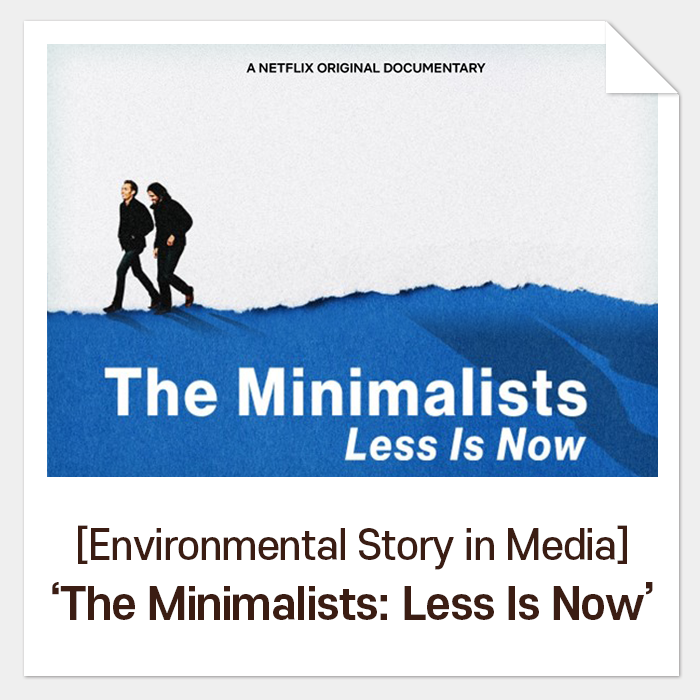Ban on Repackaging to Reduce Unnecessary Resource Waste and to Build Sustainable Korea!
On June 18th, distributors and consumers were put in a great confusion. Articles were released saying the Repackaging Ban starting from the following month practically means that the Government would forbid discount promotions such as “Buy one, get one free”. The article bitterly criticized that the Korean would be the first country to ban on bundle discount in the world. Let’s keep reading to see what this controversial law exactly is and the true intention for it!
Why Ban on Repackaging?
The repackaging ban law is to prohibit distributors from selling products after re-packaging. Packaging is primarily used to prevent a product from being destroyed or lost and to deliver a product’s information to a customer. As the excessive packaging has become a popular marketing form, however, the amount of waste has been soaring up.
In order to resolve the waste issue, the Ministry of Environment carried forward the measures to prevent excessive packaging on January 14th this year and announced the revised ‘Standards for the packing materials and packing methods’ under ‘Act on the promotion of saving and recycling of resources’ on January 29th. This states that unnecessary plastic bag repackaging for sales would be banned and the packing standards for a small, portable electronic products would be applied. It was supposed to be effective on July 1st.
Drifting Repackaging
Ban
However, when the
Ministry of Environment arranged a meeting with the relevant industries to provide
some examples before the enforcement of the law, it caused more confusion among
the markets. The problem was that the objects of the regulation were neither
consistent nor clear.
For instance, bundled products with a band or tape were to be out of the market but later the department excluded them unless a product is entirely repacked in another plastic bag or a box. In case of a warehouse chain supermarket, the place was described to be exception at first but reversed. Furthermore, the discussion over online channels using more packaging to prevent the damage and to keep a product’s freshness has not been even started yet.
The industries complain that the standards for repackaging are too vague. They also insist it would be not easy to switch from their current marketing strategies to others at once. Some of them were skeptical about the revised law, criticizing that the department did not understand how it works in the field. As the previously provided guide line took the discount as a repackaging example, it evoked the misunderstanding among customers. They are concerned if this law wouldn’t allow them to have cost benefits such as BOGO(Buy-one-get-one-free) offers from now on.
The Ministry of
Environment recognized the confusion and announced that they would analyze the
matter from every aspect from the ground up and set a clear guide line to enforce
the law in January of 2021.
The Destination
of the Ban
The major reason
that the Ministry of Environment introduced the ban is to reduce the packing
waste occurred by repackaging a product. Song Hyungguen, head of Natural
Environmental Policy, said “It is not to regulate the discount for bundled
products” and “we will supplement the details in order to minimize the
discomfort of the citizens and companies while solving the issue of excessive
packing.”
Our Choice for coexistence, Ban on Repackaging!
In order for the ban to accomplish its goal, it should be accompanied with complete understanding and analysis about the fields. Once the law is officially enforced, distributors need to bring varieties to their common marketing strategies of conventional giveaways. This may affect the production cost, stock management, and make it difficult for companies to enter and share the market. As a customer, they may feel like they are deprived of their benefits for cost effective products. Thus, there needs to be a thorough research from various approaches.
Easily recyclable
paper packaging that allows distribution and purchase convenient just as before
could be considered as an alternative, too.
After COVID-19 outbreak, the growth of un-tact consumption from using online markets and delivery service results in that of waste.
As the amount of waste is increasing in the world annually, China the biggest importer of the wastes has banned the import of recyclable waste from foreign countries in 2018. Without any value, the waste was abandoned and piled up in our yards, called the “War of Recyclable Waste” and people from the relevant industries are warning that its second round could occur any time soon.
The ban on repackaging shows the government’s determination to prevent this environmental crisis fundamentally. Government should consider the condition of each subject engaged in this, but implement consistent and firm policy towards the intended goal. The companies should come up with creative promotional ways for packaging including visual approaches and sensible in-store displays. They are also requested to take the environmental responsibility such as applying sustainable packaging simultaneously. Lastly, consumers should understand the policy to save the resource and promote recycling and reflect it to their consumption activities.
The
responsibility towards sustainable society shouldn’t be burdened on a certain
group, and it cannot be solved in that way, either. Every subject in a supply
chain of production, distribution, and consumption should know their roles and
try to practice it. We hope the stable settlement of the policy places a solid
foundation for a resource circulation structure and acts as a good opportunity
to promote coexistence of eco system, nature and human beings.










Comments
Post a Comment